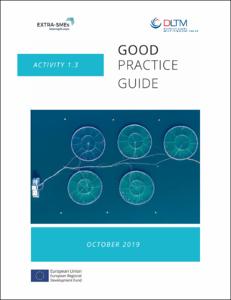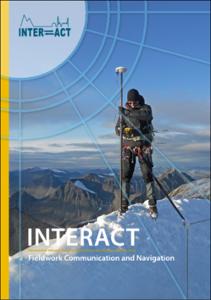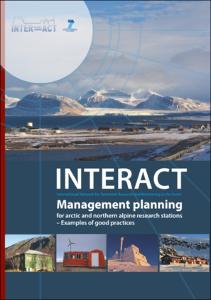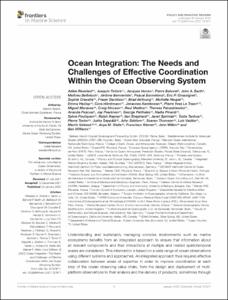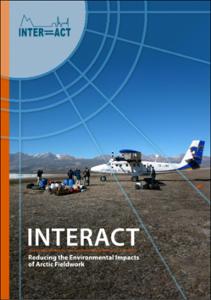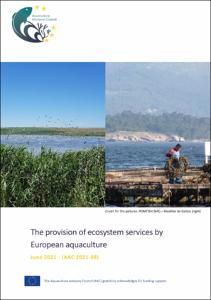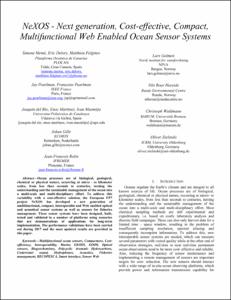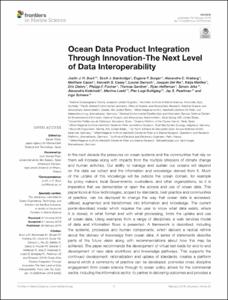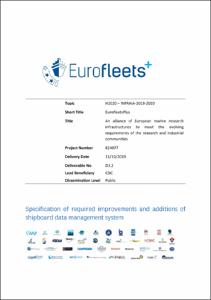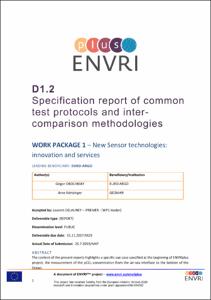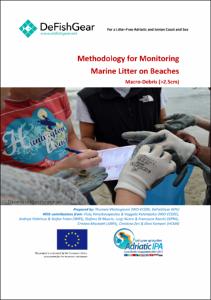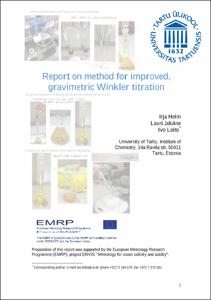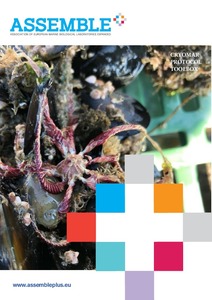European Union Funded Practices: Recent submissions
Now showing items 61-80 of 116
-
Identification of maritime spatial planning best practices in the Baltic Sea Region and other European Union maritime regions.
(Maritime Institute in Gdańsk, Gdansk, Poland, 2012)This report identifies good practices in implementation of the Baltic Sea Broad-scale Maritime Spatial Planning Principles jointly developed by VASAB and HELCOM. in 2010. The main aim of this exercise is to support planning ... -
Good Practice Guide: Activity 1.3.
(INTERREG Europe, Extra SMEs, 2019)The EXTRA-SMEs project aims to improve and adapt aquaculture business development strategies through reflection and analysis, share lessons learned from actual implementation, and implement large-scale, sustained and ... -
Recommendation on Aquaculture Values.
(Aquaculture Advisory Council (AAC), Brussels, Belgium, 2021)In 2018, the EU-28 ranked 6th in the top 15 fisheries-producing countries in the world, with a total production of 6.6 million tonnes1. This position is mainly based on the catches of the commercial fishing sector, where ... -
The Role of Producers’ Organisations in the Sustainable Development of Aquaculture.
(Aquaculture Advisory Council (AAC), Brussels, Belgium, 2021)The reformed Common Fisheries Policy (CFP) and the Common Market Organisation (CMO) encouraged the creation of aquaculture Producer Organisations (POs) and enhanced their responsibilities with a view of contributing to the ... -
INTERACT Fieldwork Communication and Navigation.
(Aarhus University, DCE – Danish Centre for Environment and Energy, Aarhus, Denmark, 2021)When preparing for fieldwork, there is a wealth of things to keep in mind and to make decisions about. Communication and navigation are essential elements of conducting science in cold and remote areas of the world. ... -
INTERACT Management planning for Arctic and northern alpine research stations – Examples of good practices.
(Aarhus University, DCE – Danish Centre for Enviroment and Energy, Aarhus, Denmark, 2014)This book is about management of arctic and northern alpine research stations. It has been produced by a group of station managers participating in the EU 7th Framework Programme Infrastructure project called INTERACT. ... -
Ocean Integration: The Needs and Challenges of Effective Coordination Within the Ocean Observing System.
(2022)Understanding and sustainably managing complex environments such as marine ecosystems benefits from an integrated approach to ensure that information about all relevant components and their interactions at multiple and ... -
Best Practice Data Standards for Discrete Chemical Oceanographic Observations.
(2022)Effective data management plays a key role in oceanographic research as cruisebased data, collected from different laboratories and expeditions, are commonly compiled to investigate regional to global oceanographic ... -
INTERACT Reducing the Environmental Impacts of Arctic Fieldwork.
(Aarhus University, DCE – Danish Centre for Environment and Energy, Aarhus, Denmark, 2021)The environmental impacts of fieldwork at and around research stations may be small in comparison to the impacts of all other human activities and in relation to the often vast and remote areas in which the fieldwork ... -
The provision of ecosystem services by European aquaculture.
(Aquaculture Advisory Council (AAC), Brussels, Belgium, 2021)Through the Commission communication "The European Green Deal", Europe reaffirms its commitment to respond to the climate and environmental challenges that will shape our common future. Global warming and climate change ... -
NeXOS - Next generation, Cost-effective, Compact, Multifunctional Web Enabled Ocean Sensor Systems.
(IEEE, 2017)Ocean processes are of biological, geological, chemical or physical nature, occurring at micro - to kilometer scales, from less than seconds to centuries, turning the understanding and the sustainable management of the ... -
Ocean Data Product Integration Through Innovation-The Next Level of Data Interoperability.
(2019)In the next decade the pressures on ocean systems and the communities that rely on them will increase along with impacts from the multiple stressors of climate change and human activities. Our ability to manage and sustain ... -
Specification of required improvements and additions of shipboard data management system. Version 1. EuroFleets WP3, Deliverable 3.2.
(EuroFleets, 2019)The Eurofleets+ fleet comprises twenty-seven research vessels operated by European and international research organizations that will provide ship time as part of the transnational access (TA) calls for deploying Eurofleets ... -
First Application of IFCB High-Frequency Imaging-in-Flow Cytometry to Investigate Bloom-Forming Filamentous Cyanobacteria.
(2021)Cyanobacteria are an important part of phytoplankton communities, however, they are also known for forming massive blooms with potentially deleterious effects on recreational use, human and animal health, and ecosystem ... -
Menu of Co-creation Methods. Deliverable 3.1.
(Centre for Genomic Regulation for ORION Project, Barcelona, Spain, 2017)The ORION project seeks to promote institutional change in life science research performing and research funding organisations by performing co-creation experiments. Co-creation experiences are a way in which to connect ... -
D1.2 Specification report of common test protocols and inter-comparison methodologies. Work Package 1 – New Sensor technologies: innovation and services.
(Envriplus, 2019)The content of the present reports highlights a specific use case specified at the beginning of ENVRIplus project, the measurement of the pCO2 concentration from the air-sea interface to the bottom of the Ocean. The ... -
Marine Debris: Understanding, Preventing and Mitigating the Significant Adverse Impacts on Marine and Coastal Biodiversity.
(Secretariat of the Convention on Biological Diversity, 2016)Marine debris is recognized as a globally significant stressor on the marine and coastal environment, with impacts on marine biodiversity having been reported over the last four decades. There are also socioeconomic ... -
Methodology for Monitoring Marine Litter on Beaches: Macro-Debris (>2.5cm).
(MIO-ECSDE, DeFishGear, Athens, Greece, 2017)The following methodology has been prepared based on the EU MSFD TG10 “Guidance on Monitoring of Marine Litter in European Seas (2013)”, the OSPAR “Guideline for Monitoring Marine Litter on the Beaches in the OSPAR Maritime ... -
Report on method for improved, gravimetric Winkler titration,
(University of Tartu, Institute of Chemistry,, Tartu, Estonia, 2013)This report presents a high-accuracy Winkler titration method that has been developed for determination of dissolved oxygen concentration. Careful analysis of uncertainty sources relevant to the Winkler method was carried ... -
CRYOMAR Protocol Toolbox. V.0. ASSEMBLE Plus, Deliverable 8.2.
(Universidade de Vigo for ASSEMBLE+, 2020)The aim of this report is to publish cryopreservation protocols developed and or standardized due to the Work Package 8 (JRA 2 CRYOMAR) coordinated research effort in cryobiology applied to the marine environment, as ...
 Repository of community practices in Ocean Research, Applications and Data/Information Management
Repository of community practices in Ocean Research, Applications and Data/Information Management

